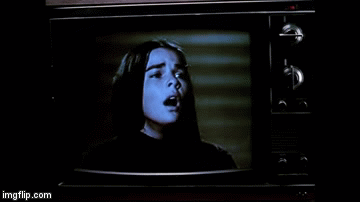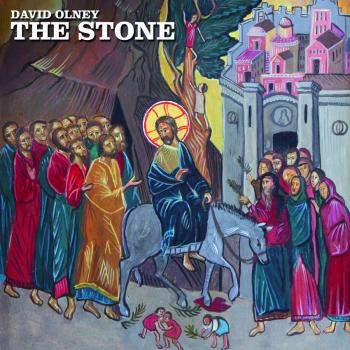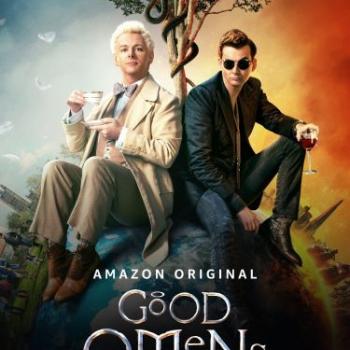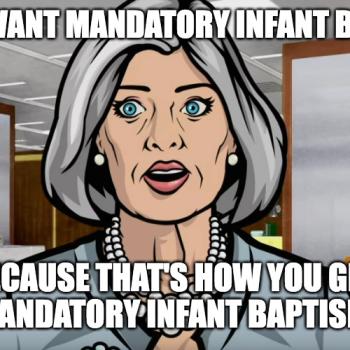• Adam Laats on Trumpist Christian nationalism and evangelical colleges:
It has never been easy for white American evangelicals to put their evangelical religion above their racial and national loyalties. At colleges and universities, particularly, explicit religious belief has often played second fiddle to a ferocious Trump-style white nationalism.
The main problem with this critique, I think, is that Laats is still regarding “their evangelical religion” as something distinct and distinguishable from “their racial and national loyalties.” It’s not. It never has been.
Just ask Venus. Or Titus. Or Joseph and Susanna.
• Ed Kilgore reviews the latest instant hagiography of Donald Trump from a pair of Trump’s biggest white evangelical fanbois. It’s a good essay, despite Ed’s claim therein that Paul wrote Hebrews.
• The current dictates of hipness do not allow the unironic enjoyment of Mariah Carey songs. I disagree with this policy. I’m not really qualified to write a defense for earnest Mariah-appreciation, having only belatedly, after long argument, conceded that “Dreamlover” and “Fantasy” were not the same song. But I think both song are nice, and the people I know who really like them also tend to be really nice people.
These songs also deserve degree-of-difficulty points for being happy love songs. These are a lot harder to pull off than songs of anguish and heartbreak. If you happen to hear a sad song when you’re not in a sad mood, you don’t tend to think less of the song because of it. But if you’re feeling sad and heartbroken and some peppy song about the unshakable love of some happy couple starts to play it will seem like a personal attack. It will make you angry.
I’m thinking again of Ashford & Simpson, whose decades-long happy marriage accompanied a decades-long songwriting career that produced dozens of happy love songs. If one of those great songs comes on when you’re not in the right mood, you’ll wind up making like Martha Plimpton in 200 Cigarettes.

• Every Barnes & Noble has a shelf filled with viewers-guide reference books for popular TV shows. Those books don’t usually wind up as the subject of long essays in The New York Review of Books, but happily, they’ve made an exception for Steven Jay Rubin’s The Twilight Zone Encyclopedia. J.W. McCormack says the book is worth your time. I’ll say the same thing for McCormack’s review.
Here’s one nugget, from Rod Serling’s response to network complaints that the Nazi character played by a young Dennis Hopper in the episode “He’s Alive,” sounded too much like Barry Goldwater:
[The far right seems] to feel that racism, bigotry and hatred should be of little consequence to us in view of the fact that communists are trying to take over our government, invade our schools, and subvert our institutions. … But I submit that we have other enemies no less real, no less constant, and no less damaging to the fabric of a democracy. It’s when we hear denials that these people exist, and that their poison is being disseminated, and that any comment to the effect is irrelevant — I wonder if The Twilight Zone isn’t something more than a television idea.
• If you’ve been wondering who Marjory Stoneman Douglas High School was named after, read this.
• The Revealer is back. This is a Good Thing. Maybe resistance is not futile and we aren’t all doomed to be assimilated by FaceBorg.
• Here’s some Mariah’s “FantasyLover” for your unironic enjoyment and/or your ironic “enjoyment.”
















